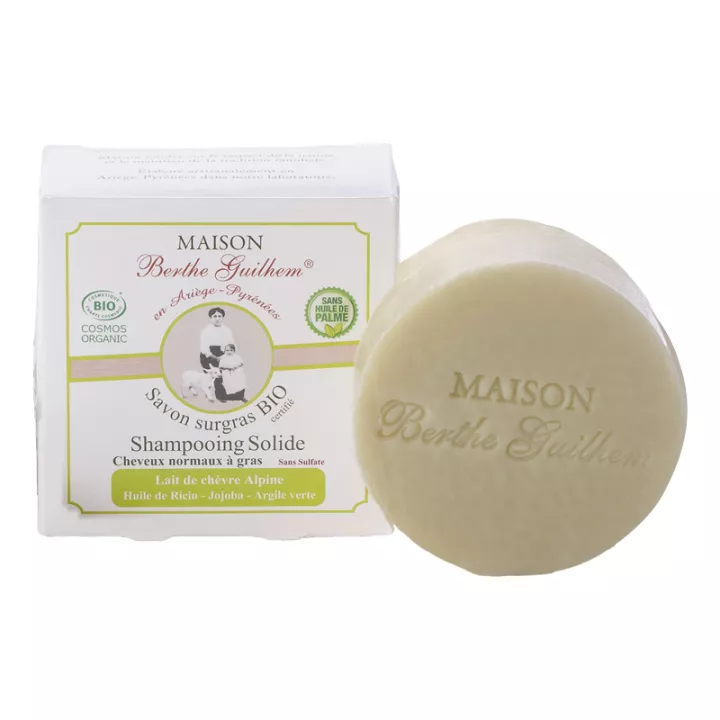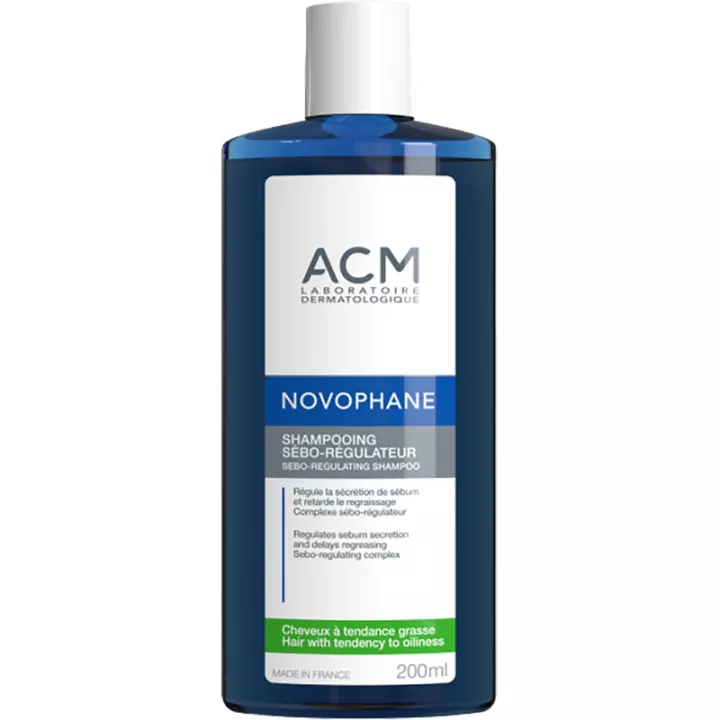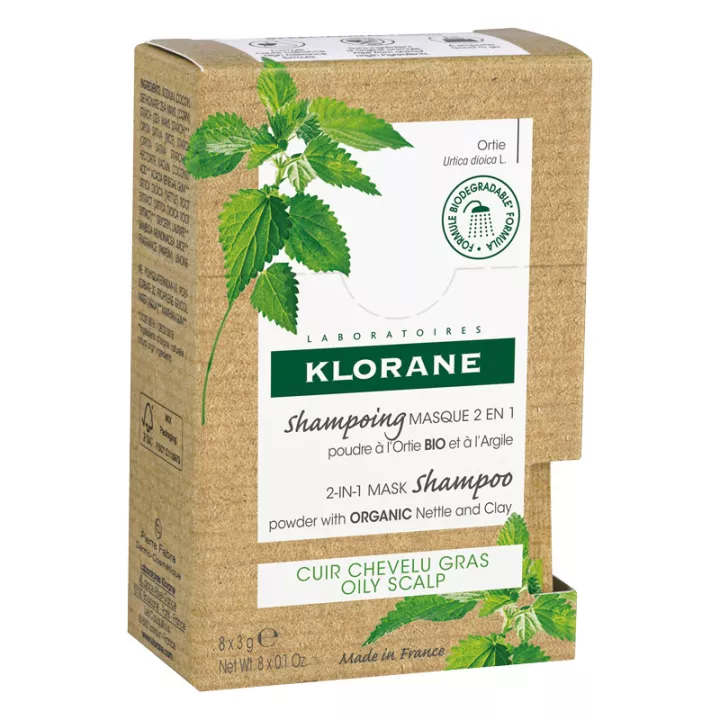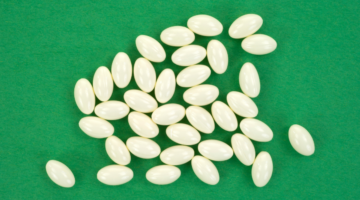What is Maison Berthe Guilhem Organic Solid Shampoo for Normal to Oily Hair used for?
This solid shampoo is the ideal solution for washing your hair in a more ecological way.
This goat's milk shampoo improves hydration, tightens hair scales and restores shine.
This organic shampoo is an astonishing cosmetic product, because it's made from gentle surfactants and a natural COSME Bio-certified cleansing base withorganic coconut oil, and respects the scalp and hair fiber. It contains castor oil, jojoba oil and green clay topurify oily hair. It fortifies and stimulates the scalp and hair. Your hair will be soft, silky and revitalized.
The causes ofexcess sebum can be varied: pollution, stress, a hair care product not adapted to your hair type...
This natural shampoo is designed for normal hair and hair that regresses quickly. For healthy, soft, shiny hair, wash after wash, it's important to adopt the right hair care routine and supplements to keep your hair in balance.
We also offer Maison Berthe Guilhem Shampoo Solide Bio pour Cheveux Secs, at the best price in our online pharmacy.
How do I use this natural goat's milk shampoo?
You can also lather it in your hands and then massage it into your head to wash your hair. Rinse thoroughly
Give your opinion on the instructions for use and dosage of Maison Berthe Guilhem Shampoing Solide Bio pour Cheveux Normaux à Gras with our partner Verified opinions after your purchase.
What are the precautions for use?
For external use only.
What is the composition of this organic shampoo for oily hair?
sodium Palmate*, sodium Cocoate*, goat milk, coco glucoside, glycerin, simmondsia chinensis seed oïl*, ricinus communis seed oïl*, rosmarinus officinalis leaf extract*,green clay, aqua, sodium citrate.
* from organic farming, COSMOS-certified base.
Presentation - Packaging
Maison Berthe Guilhem's organic solid shampoo for normal to oily hair comes in 100g pebbles at the best online price.
Our expert advice on natural health
Greasy hair, also known as seborrhea, is caused by excessive production of sebum, an oily substance produced by the sebaceous glands of the scalp. Sebum is normally necessary to keep the hair and scalp moisturized, but overproduction can lead to greasy, dull-looking hair. Several factors contribute to this overproduction of sebum, and steps can be taken to limit its impact.
Causes of excessive sebum production :
- Genetic factors: Genetic predisposition plays a role in sebum production. Some people have more active sebaceous glands than others, which can contribute to greasy hair.
- Hormonal imbalance: Hormonal fluctuations, such as those that occur during puberty, pregnancy and menopause, can stimulate sebum production.
- Poor hygiene: Over- or under-washing can upset the sebum balance. Over-washing can stimulate the sebaceous glands to produce more sebum, while under-washing can allow sebum to build up.
- Use of inappropriate hair care products: Some hair care products, such as aggressive shampoos, can remove too much sebum, prompting the scalp to produce more to compensate.
- Stress: Stress can influence hormonal levels, potentially leading to excessive sebum production.
Measures to limit sebum production:
- Choosing the right hair care products: Opt for shampoos and conditioners specifically designed for oily hair. Avoid products containing heavy or oily ingredients.
- Washing frequency: Wash your hair regularly, but don't overdo it. Daily washing can stimulate sebum production. Wash with lukewarm water, as hot water can also increase sebum production.
- Gentle massage: Gently massage the scalp while washing to stimulate blood circulation, which can help balance sebum production.
- Avoid touching your hair: Frequent hand contact can transfer sebum from hands to hair, making the situation worse.
- Balanced diet: A diet rich in saturated fats can influence sebum production. Opt for a balanced, nutrient-rich diet.
- Stress management: Practice stress management techniques such as meditation, yoga or deep breathing.
In short, oily hair is mainly the result of overproduction of sebum due to genetic factors, hormones, poor hygiene or stress. To reduce sebum production, we recommend a balanced approach to hair care, diet and stress management.













